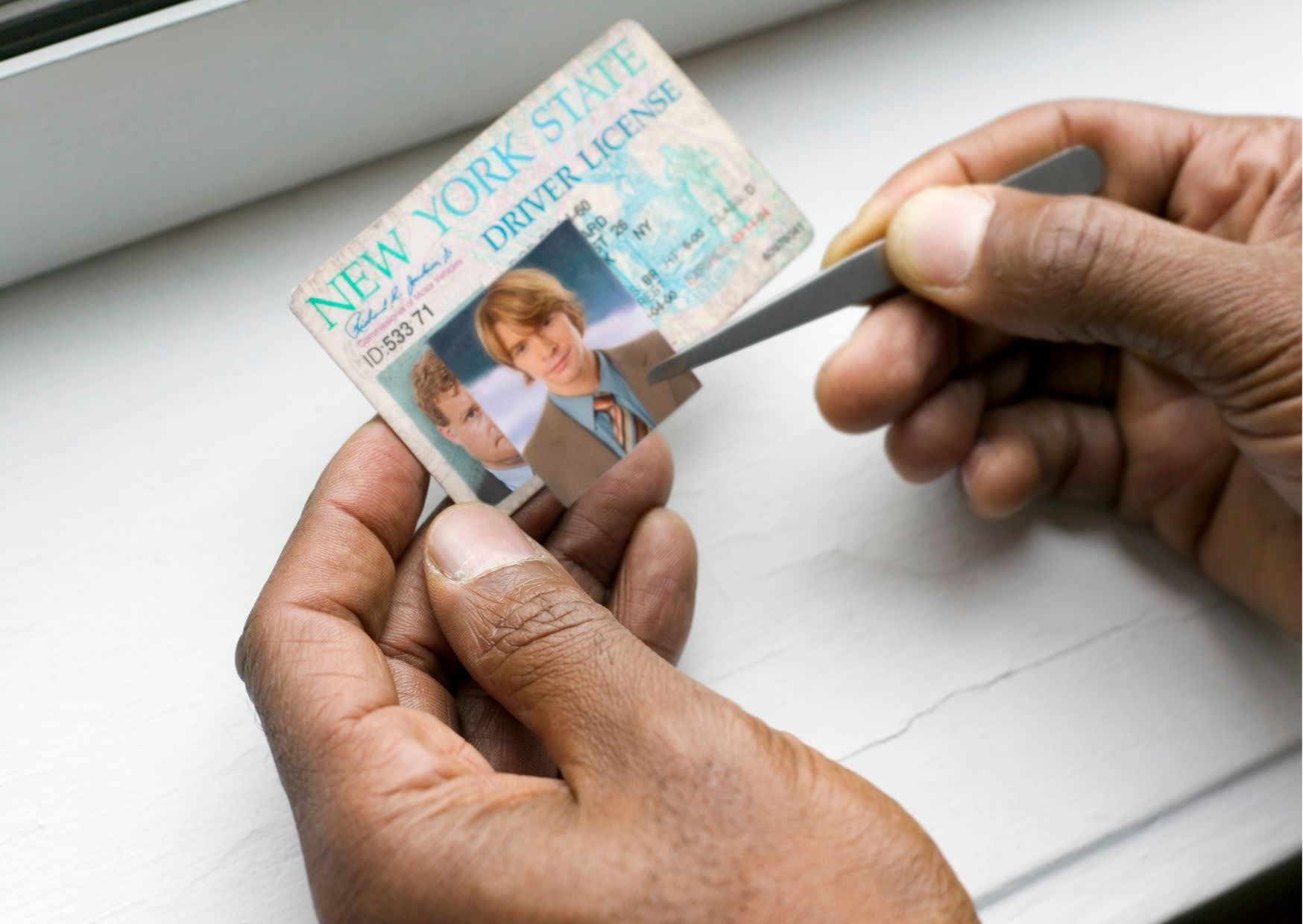11 Tips on How to Avoid Rental Scams Abroad
Scammers take advantage of your lack of knowledge and urgency to rent. Use these 11 tips to avoid online scams when renting abroad.
Priscilla
When you’re planning to move abroad, one of the most important things you’ll need to do is find a place to rent. This is arguably one of the hardest things to do as you don’t know who to trust, where to live, or whether the rent is high. This is a terrible combination as scammers take advantage of this lack of knowledge and urgency to find a place to trick students or expats out of their money.
Since renting housing abroad will take up the largest part of your budget, you need to be extra careful and attentive to the rising scams. To help you have a safe and smooth rental experience, this guide will teach you all you need to know about scammers and their techniques.
1. Scammers will lure you with too good to be true accommodation

Although this saying is a cliche, scammers are always finding new, creative ways to distract you from the scam with too good to be true features and amenities. How do you spot these? Here’s how:
- The rent is much lower than properties in the same area. Check the rent index or neighbourhood guides online to see the average prices.
- The images show the interior is much different from other rental properties. E.g. the sockets or bathrooms look very different.
- They offer immediate move in with no background checks.
2. Scammers will phish for personal information early in the process
Scammers posing as landlords use various phishing tactics to trick prospective tenants into providing personal information. They often request sensitive information such as bank details and pictures of ID through unsecured or non-official forms sent via email or messaging apps. To protect yourself, avoid providing such sensitive information early in the rental process. Legitimate landlords typically require these details later, often during the lease signing. Also, make sure to use apps that let you create a copy of your ID with sensitive details blacked out, which organizations don't need or shouldn't process. These apps can also add a watermark to the copy for added security.
3. Scammers will hurry you to pay rent
Scammers are very insistent about receiving your payment right away. In fact, they’ll often invent other tenants who want to rent the property right away. Some may go as far as to say they’re going to rent to you because they “like you better,” just as long as you can pay first. This type of behaviour is almost always a sure sign that you’re dealing with a scammer.
4. Scammers will become annoyed easily
If the “landlord” that you’re dealing with seems to get annoyed when you ask for additional images, video or answers to questions, then it could be a red flag. Scammers want to take your money quickly and move on to the next potential victim; so slowing them down by asking them to upload documents or pictures is enough to create some agitation.
5. Scammers will get creative with a fake or unfair rental agreement

Some scammers get super creative and to convince you, they’ll even send you a copy of a rental agreement. While this can easily trick many people into believing the scam, pay attention to what they’re and aren’t asking for. For example:
- They’ll pressure you into paying the first month’s rent and deposit before signing the contract.
- There’s no mention of a rental address or there’s an incorrect address.
- The landlord’s personal information is either missing or incorrect.
- There’s no check for documents that’re typically asked for, such as bank statements.
- They won’t be able to answer your questions, ignore them, or will get agitated quickly.
- They’ll ask for an unusually high deposit. Check local laws.
If things don’t seem good, resist the pressure to send money or sign a contract.
6. Scammers will not screen you before renting to you
Scammers might not request the documents that are typically expected when renting a property. These may depend on the country you’re moving to but typically include:
- Photo identification
- Proof of study or employment
- Bank statements or other proof of income
- Statement from a guarantor (if you do not have your own income)
If they don’t want to screen you, don’t trust them! At the same time, if they’re in a hurry to ask for your documents, be wary. They might be trying to steal your identity! If in doubt, ask them what they need it for and why. If they get irritated or have a bad response, you might be dealing with a scammer.
7. Scammers will try to outsmart you with fake documents

Unlike the previous scenario, in this case, scammers will convince you of their authenticity with stolen, but real identities.
Some prospective tenants think that if they ask for official ID copies from the “landlord”, they can verify their true identity. But having someone send over their personal information does not guarantee that the person behind the screen isn’t a scammer or identity thief. After all, it isn’t that hard for scammers to get their hands on IDs. They simply ask prospective tenants to share or upload their IDs and then create new profiles based on the stolen identity.
When asked for an ID, which you’ll most likely need to verify when renting, make sure that you’ve looked at the reviews of the platform or agency or at least seen the landlord and the apartment prior to sending the documents.
8. Scammers will ask you to wire money or pay cash
There’re numerous warning signs online or at banks that wiring money can be dangerous. Yet, you’ll be surprised how many people of all ages and walks of life transfer funds to a complete stranger in a foreign country. If your “landlord” asks you to wire money for an urgent transfer and isn’t willing to use a more secure payment method, step away.
The same goes for cash payments or bitcoin payments. They’re completely untraceable and once they get your money, it’s highly unlikely you’ll ever find them again.
Now that you know some common ways scammers will trick you, here’re some tips on how to avoid them.
9. Avoid using social media to find housing

Using social media to find housing can be tempting. While Facebook groups are a great way to find other internationals and learn more about the city, finding a house on such platforms is risky.
Scammers on Facebook understand your fears and demands of renting a furnished place and will use several convincing techniques to get money from you. Here’re some telltale signs to watch out for during your search:
-
A new or sparse profile: Scammers can’t cheat numerous tenants from the same profile for long, so they are constantly creating new profiles. So if the so-called landlord has a new profile or even one with very few friends or activities, then they could be a scammer.
-
Old posts are all about housing: Go to their profile and see what else they’ve shared in the Facebook group before. If it’s only about housing, the same or similar house, and barely any reactions or comments, it’s highly likely they’re a scammer.
-
Check Other Listings: If you’re looking for rentals on the Marketplace, look at their profile and listings. If they’ve recently joined Facebook, have very few friends, use varied spellings across their listings, and offer rentals in many cities or languages, it’s probably a scam.
10. Be attentive if the landlord is foreign
It’s more common for locals to buy and rent out their property than it is for foreigners. This is not to say that there aren’t genuine and verified expat landlords renting out their property. But it is a good idea to proceed with caution if the landlord doesn’t sound local. And if you see a lot of spelling mistakes or some detailed sob story, be more attentive!
11. Pay attention to phishing scams

There’s one last thing you can do to spot a scam — pay attention to the website’s URL or the email address and template. This is especially the case when you’re renting through an agency or platform that’s fairly well known. Phishing scams are highly convincing, especially because most people don’t sit with a magnifying glass inspecting every little detail.
So take your time and pay attention to whether the URL starts with “https://” and ends with a .com or any other extension. If you’re looking at an email, check if the email is the same one as the one used by the company — you can find this on the website and other social media platforms.
Use these tips to stay safe
Be sure to take these tips when you’re moving abroad and apply them when searching for rental housing so that you don’t fall victim to an online rental scam.
If you want to take it a step further, then the best way to be certain that you’re not being scammed is to work with a trusted housing platform such as HousingAnywhere. Here’s why:
- All landlords are verified and those who have successfully rented in the past get the “excellent advertiser” badge.
- Your deposit and rent will be protected for 48 hours after you move in. If things aren’t as promised or advertised, you’ll get your money back.
- Unlike with real estate agents, you won’t have to pay high, unexpected fees.
- You can set up search alerts to be immediately notified of any new available listings.
Good luck with your housing search, and enjoy your time living abroad!
Please reach out to content@housingnayhwere.com if you have any suggestions or inquiries about the content on this page.
Related articles
In this article
1. Scammers will lure you with too good to be true accommodation
2. Scammers will phish for personal information early in the process
3. Scammers will hurry you to pay rent
4. Scammers will become annoyed easily
5. Scammers will get creative with a fake or unfair rental agreement
6. Scammers will not screen you before renting to you
7. Scammers will try to outsmart you with fake documents
8. Scammers will ask you to wire money or pay cash
9. Avoid using social media to find housing
10. Be attentive if the landlord is foreign
11. Pay attention to phishing scams
Use these tips to stay safe


